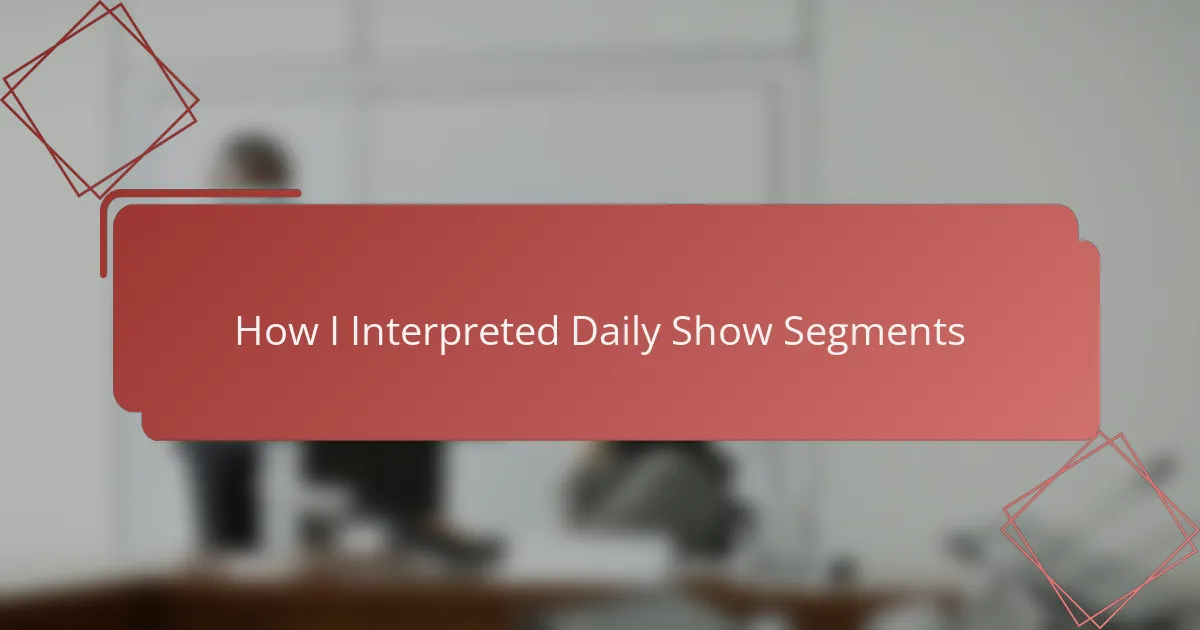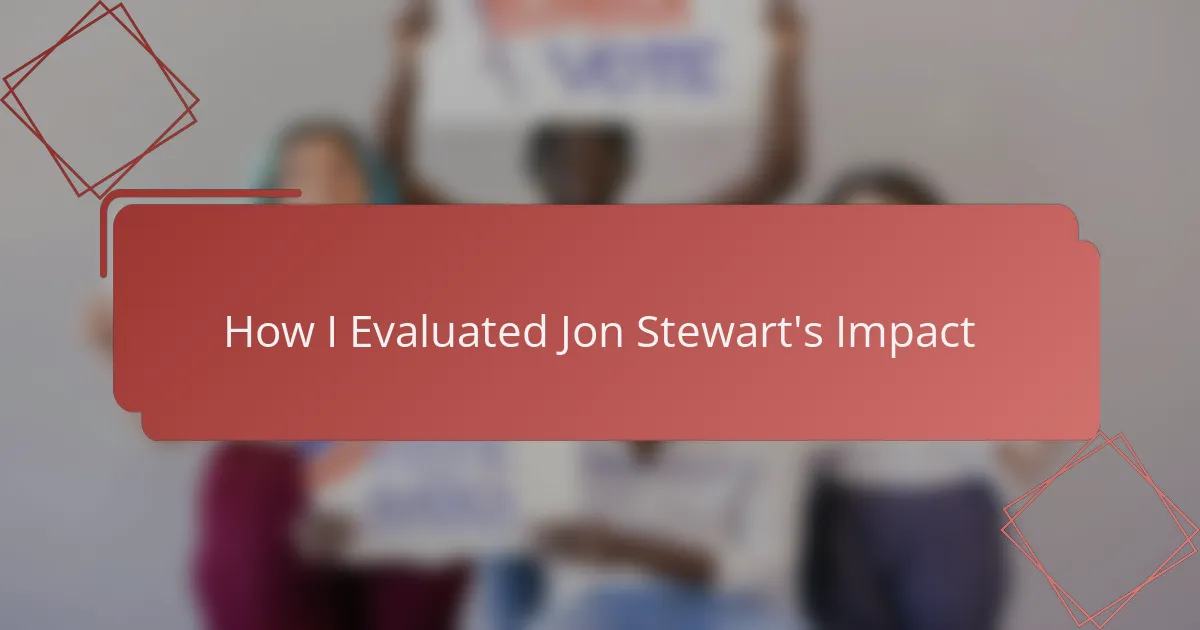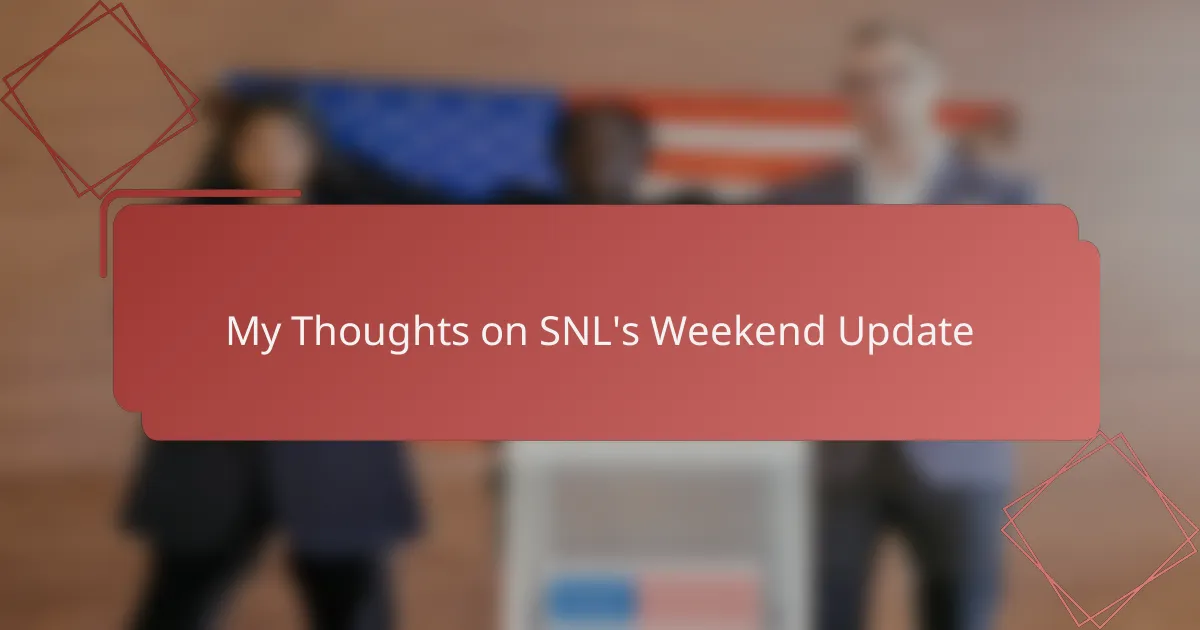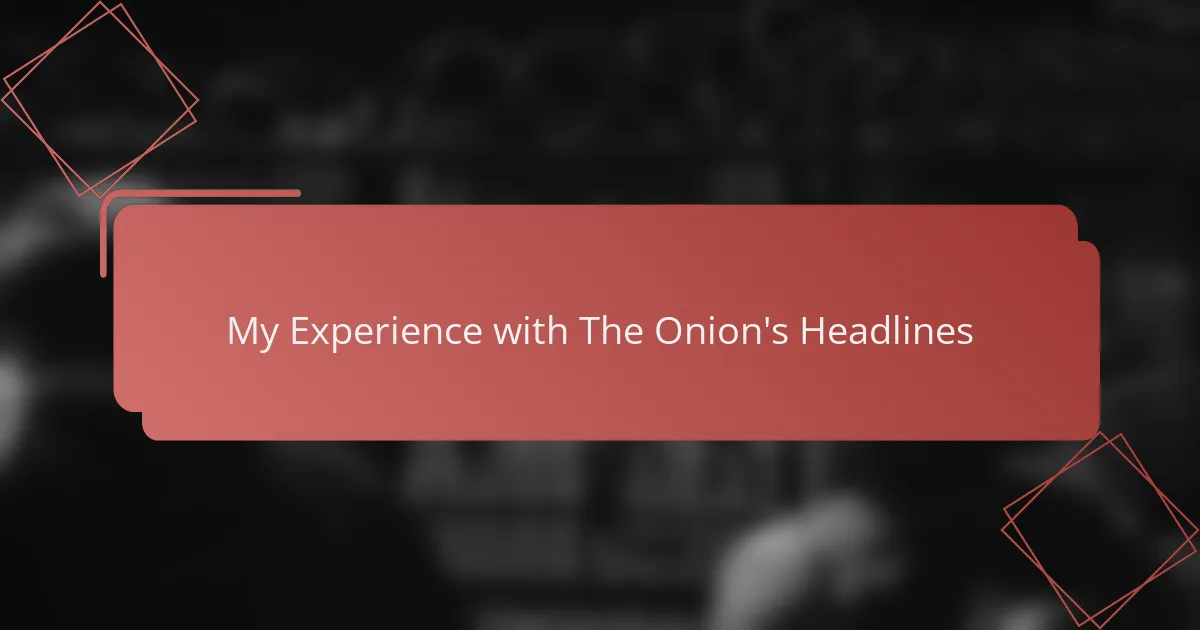Key takeaways
- Political satire uses humor to illuminate political flaws, encouraging viewers to think critically about underlying messages rather than just enjoying the jokes.
- The Daily Show artfully blends satire and news, challenging viewers to recognize the significance of irony and exaggeration in political discourse.
- Engaging with satire promotes critical media literacy, prompting individuals to question narratives and identify biases within traditional news coverage.
- Contextual understanding and a balanced approach enhance the viewing experience, transforming passive consumption into active, thoughtful engagement with political issues.

Understanding Political Satire Basics
Political satire, at its core, uses humor to shine a light on the quirks and flaws in politics. When I first watched a Daily Show segment, I realized satire isn’t just about making fun; it’s about making us think. Have you ever noticed how a joke can sometimes cut deeper than a formal news report?
What fascinates me is how satire walks a tightrope—being funny while also being truthful. It’s a bit like holding up a funhouse mirror to politics, exaggerated but grounded in reality. I often find myself laughing first, then reflecting on what lies beneath the punchline.
Understanding this balance changed how I interpret every segment. Instead of just enjoying the humor, I started looking for the message underneath. It made me ask: What’s the real story behind this joke? That question, to me, is the heart of political satire.
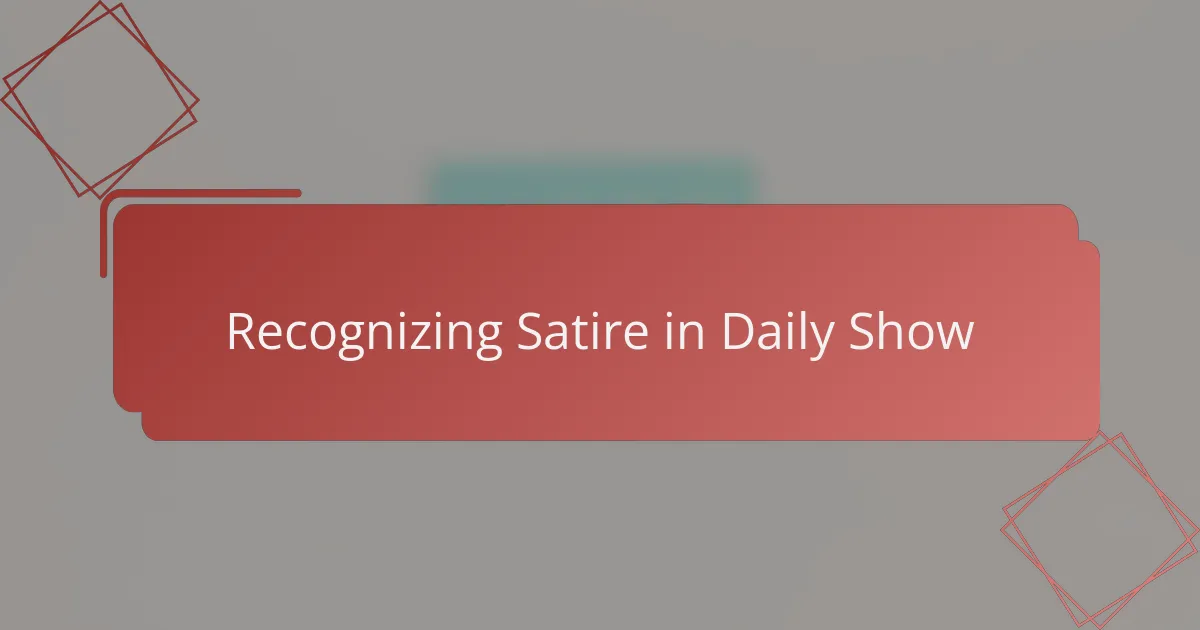
Recognizing Satire in Daily Show
Recognizing satire in The Daily Show means tuning in to more than just the laugh track. I remember a time when a segment’s exaggerated headline made me chuckle, but then I paused to consider the actual policy it was critiquing. That moment struck me—satire isn’t just decoration; it’s a lens that sharpens our focus on political absurdities.
Sometimes, I catch myself questioning if what I’m watching is straight news or satire. The show blurs these lines intentionally, which can be both confusing and enlightening. It’s this blend that challenges me to stay alert and think critically about the stories presented.
What I find truly powerful is how The Daily Show uses irony and sarcasm to expose contradictions in political rhetoric. It’s like the host is inviting me to read between the lines, making me an active participant rather than a passive viewer. Have you ever noticed how that makes the experience more engaging and thought-provoking? I certainly have.
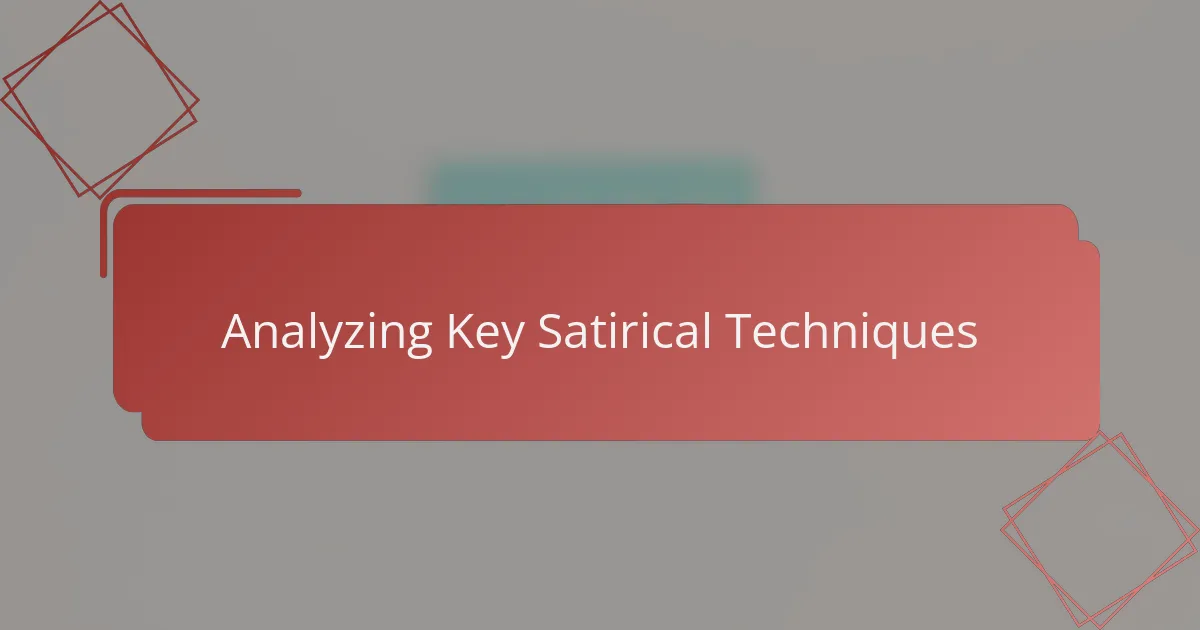
Analyzing Key Satirical Techniques
When I dive into Daily Show segments, one technique that always grabs me is parody. It’s fascinating how mimicking political figures or media styles can instantly highlight their absurdities. Have you ever caught yourself laughing at an over-the-top impersonation, only to realize it reveals something genuinely troubling?
Another tool I notice is exaggeration. The way the show blows certain facts way out of proportion isn’t just for laughs—it’s a spotlight on the ridiculousness hiding within real events. I remember feeling both amused and a bit disturbed when a segment’s hyperbole exposed just how out of touch some politicians can be.
Then there’s irony, which I find incredibly powerful. The Daily Show often says one thing while clearly meaning another, making me rethink the official narratives we usually accept. That twist—where humor meets harsh truth—pulls me in every single time. Doesn’t it make you wonder how much of what we hear in the news is just a twisted story waiting to be uncovered?
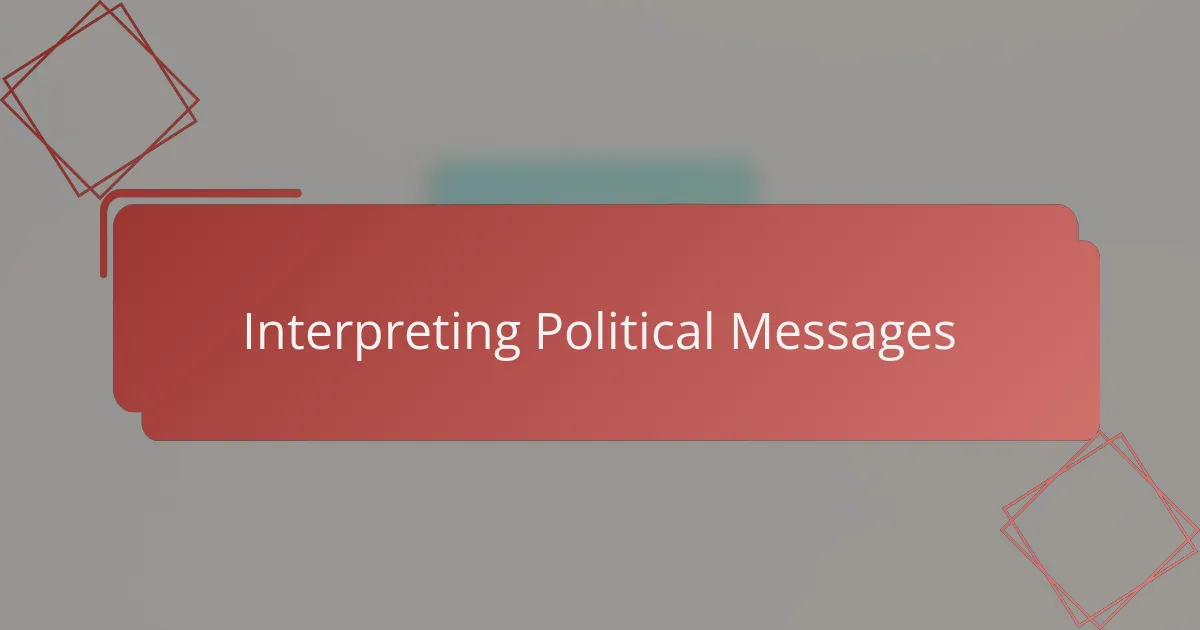
Interpreting Political Messages
Interpreting political messages in The Daily Show requires more than just catching the jokes—it demands paying attention to the underlying critiques. I remember watching a segment where a seemingly silly punchline made me pause and reflect on the deeper political failings it hinted at. That moment reminded me how satire serves as a subtle guide, pointing out issues I might otherwise overlook.
Sometimes, I find myself decoding layers of meaning woven into sarcasm or irony. It feels like a puzzle where each joke is a clue about political hypocrisy or misinformation. Have you ever experienced that rush of suddenly understanding the true message tucked inside a clever quip? For me, it turns each segment into an insightful exercise rather than mere entertainment.
What’s striking is how these political messages often challenge my own assumptions. The Daily Show doesn’t just tell me what’s wrong; it invites me to question why it’s happening and who benefits. This engagement transforms my viewing from passive consumption into active thinking—something I didn’t expect from a comedy show but now deeply appreciate.
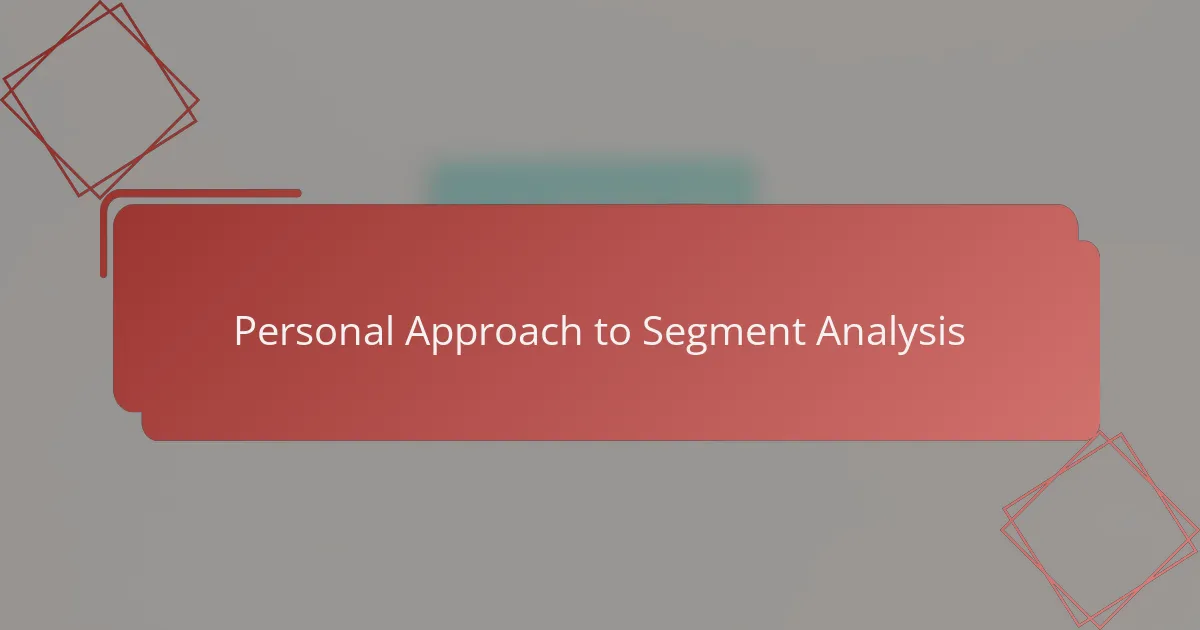
Personal Approach to Segment Analysis
When I approach each Daily Show segment, I start by asking myself what caught my attention most—was it a joke, a visual gag, or maybe a sarcastic comment? That initial emotional reaction often guides me toward uncovering the deeper political critique hidden beneath the humor. Have you ever found that a simple laugh suddenly turns into a moment of serious reflection?
I also try to consider the context behind the satire. Knowing the political climate or recent events helps me understand why certain jokes feel sharp or poignant. Sometimes, I think back to how a segment resonated differently depending on when I watched it—timing can completely change the impact, making the satire feel more urgent or even hopeful.
Most importantly, I let myself enjoy the experience without rushing to analyze right away. Taking a step back after watching helps me balance the funny with the factual, allowing those clever messages to settle in. Isn’t it interesting how this approach makes me feel more connected to the issues and more aware of the power of humor in shaping political conversations?
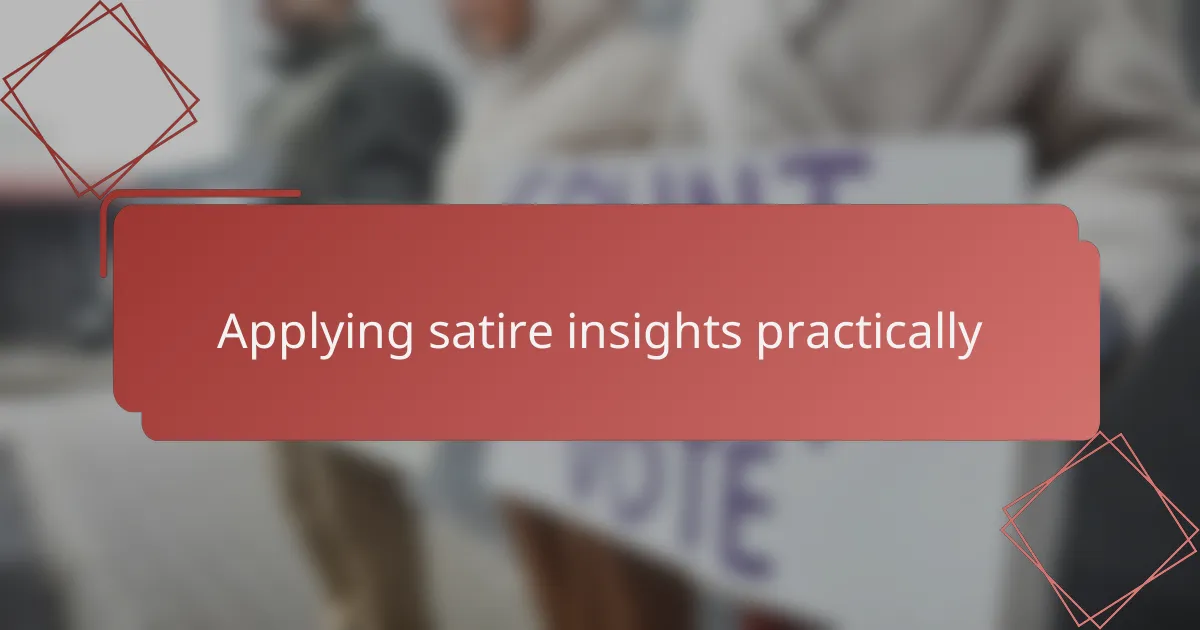
Applying Satire Insights Practically
Applying satire insights practically means taking those sharp observations from The Daily Show and letting them inform how I see real-world politics. For me, it’s never about just laughing at the jokes—it’s about asking, “What can this teach me about media literacy or political bias?” I recall a moment when a satirical segment helped me spot a misleading headline in actual news, proving how satire sharpens my critical thinking.
I often find myself sharing these insights in conversations, using humor to open up discussions about serious topics. It’s a way to break down complex political issues without feeling overwhelmed. Have you noticed how a well-timed joke can sometimes get people to rethink their opinions who might otherwise tune out? That, to me, is where satire moves from entertainment to practical influence.
Sometimes, I apply these insights by questioning the narratives behind current events, especially when mainstream media frames them in a certain way. The Daily Show taught me to look for contradictions and inconsistencies, not just accept headlines at face value. This habit doesn’t just change how I watch TV—it changes how I engage as a citizen, making me more curious and less trusting of easy answers.
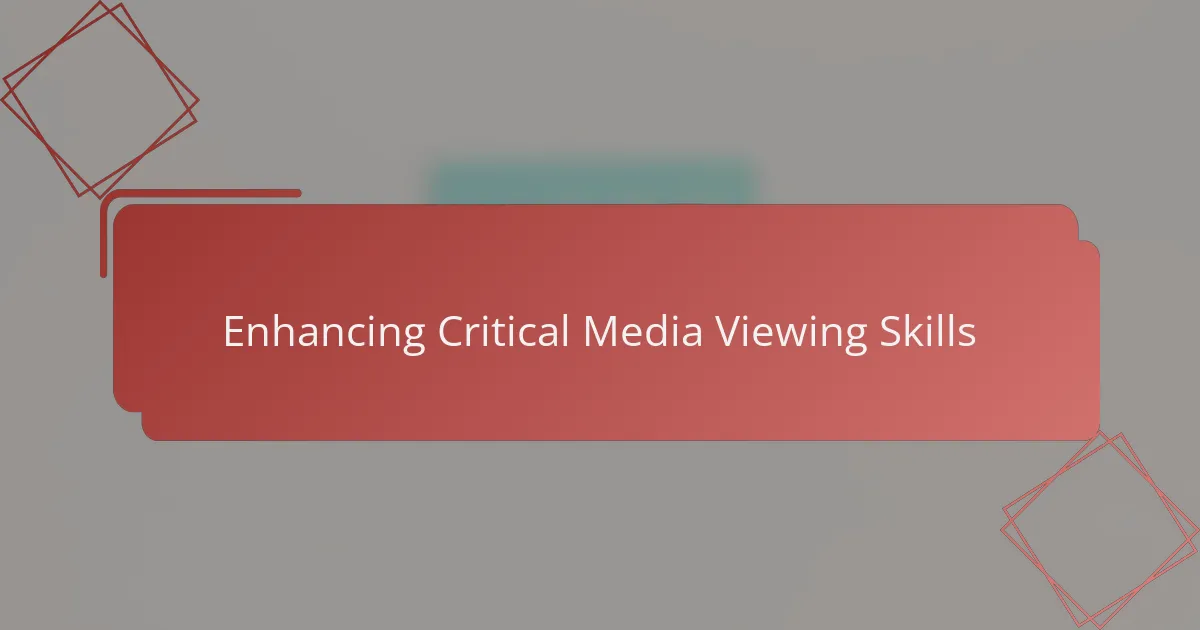
Enhancing Critical Media Viewing Skills
Enhancing my critical media viewing skills through shows like The Daily Show has been eye-opening. I noticed that instead of passively absorbing information, I started questioning the intent behind each joke and segment. Have you ever caught yourself wondering why a particular story is framed a certain way? That simple question shifted my entire approach.
What really helped me sharpen these skills was recognizing patterns in how satire highlights bias or misinformation. I remember feeling both challenged and empowered when I realized I could spot misleading headlines or exaggerated facts more quickly. It made me appreciate how humor, when combined with analysis, becomes a powerful tool for media literacy.
With practice, I found myself more resistant to surface-level narratives, always digging deeper for contradictions or hidden agendas. This habit didn’t come overnight, but each Daily Show episode felt like a mini training session. Have you noticed how engaging with satire actively trains your mind to think critically rather than just react? I certainly have, and it’s been a game changer in how I consume news.
